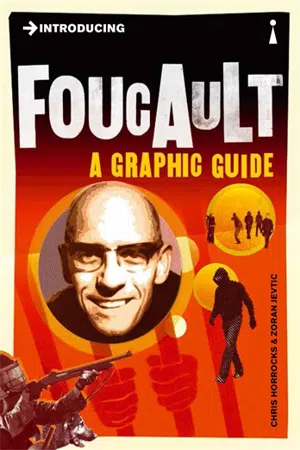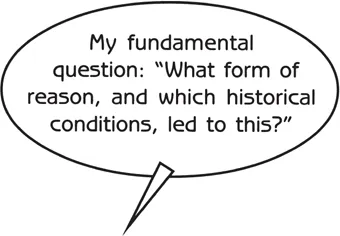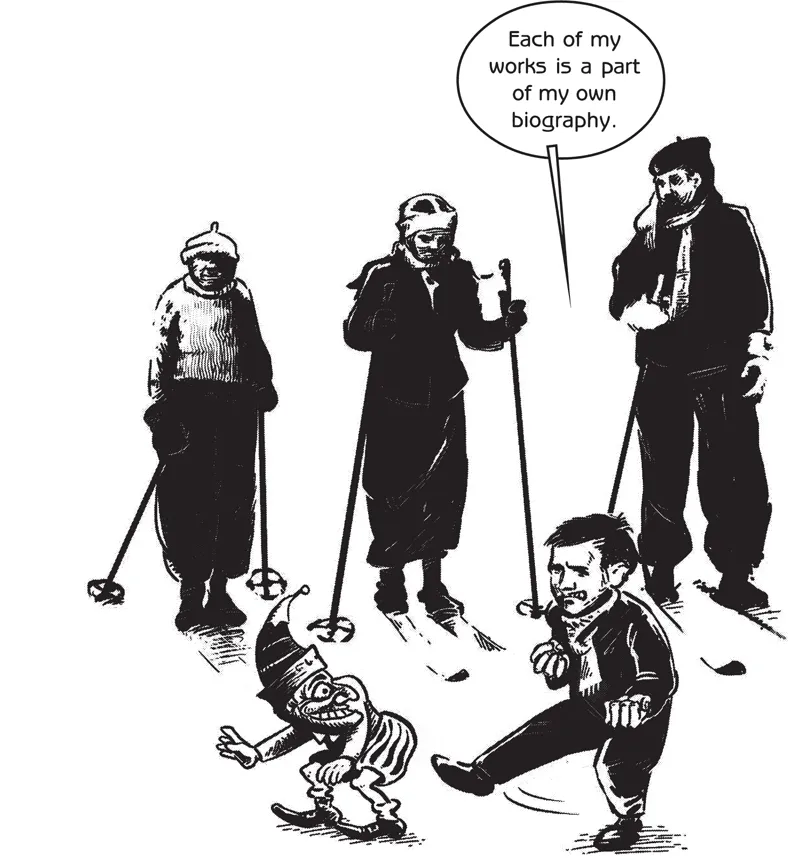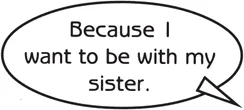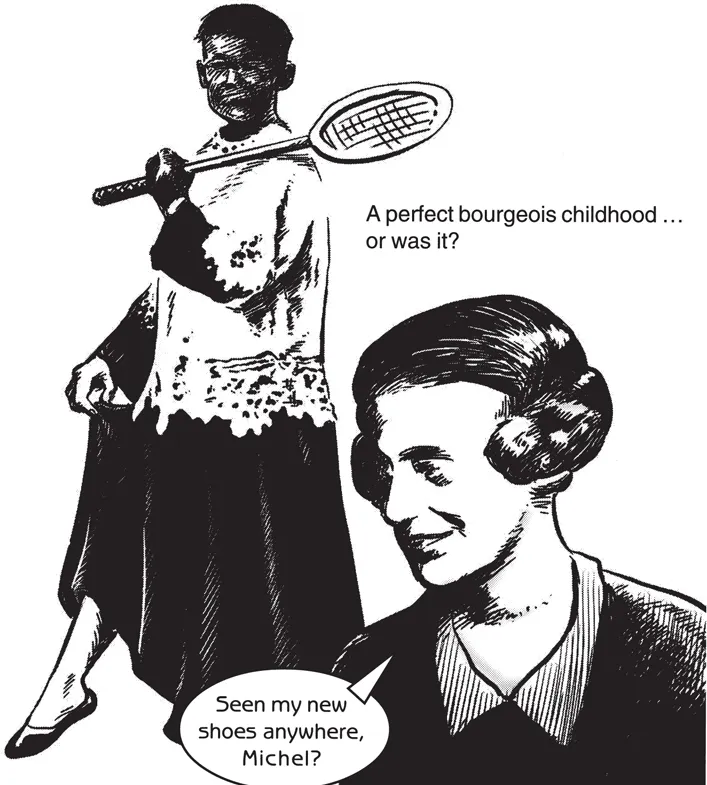![]()
I, Michel Foucault…
To find the real Michel Foucault is to ask “which one”?
Should we look at the life of the man himself, who as a boy wanted to be a goldfish, but became a philosopher and historian, political activist, leather queen, bestseller, tireless campaigner for dissident causes?
What about his literary skill, combined with painstaking historical inquiry, his excellence as a pasta cook, captivating lecturing style, passion for sex with men, occasional drug-taking, barbed sense of humour, competitiveness, fierce temper – and the fact that he came from a family of doctors and dearly loved his mother?
Foucault the Author?
Or should we see Michel Foucault as the author, whose work combines brilliant insight and eccentric detail, uniting contemporary philosophical practice with the archaeology of the many documents he patiently retrieved from history? And what should we exclude, given the huge shifts in theoretical position over his career?
Foucault himself problematized the meaning of authorship – a function, he claimed, which resolved or hid many contradictions.
So Foucault was reluctant to write his own biography or have someone do it for him. But many have, since his death.
A Transdiscursive Man
Foucault gave us the term transdiscursive, which describes how, for example, Foucault is not simply an author of a book, but the author of a theory, tradition or discipline.
We can at least say that he was the instigator of a method of historical inquiry which has had major effects on the study of subjectivity, power, knowledge, discourse, history, sexuality, madness, the penal system and much else. Hence the term, “Foucaldian”.
There are many “Foucaults” – whether they are all texts, or features in a network of institutional power, a regime of truth and knowledge, or the discourse of the author and his works. Let’s explore the many layers of Foucault.
Foucault’s Project
Foucault sought to account for the way in which human beings have historically become the subject and object of political, scientific, economic, philosophical, legal and social discourses and practices.
But Foucault does not take the idea of subjectivity in philosophical isolation. It becomes linked with – and even produced by knowledge and power through – dividing practices where, for example, psychiatry divides the mad from the sane.
Scientific classification: where science classifies the individual as the subject of life (biology), labour (economics) and language (linguistics).
Subjectification: the way the individual turns himself into a subject of health, sexuality, conduct, etc.
Foucault Fiction
“In my books I do like to make fictional use of the materials I assemble or put together, and I deliberately make fictional constructions with authentic elements.”
Let’s “fictionalize” Foucault’s life by turning it into a biographical account of Foucault and his oeuvre or work.
He was born Paul-Michel Foucault, on 15 October 1926, to Anne Malapert and wealthy surgeon Paul Foucault, in conservative Poitiers in France. Paul-Michel Foucault had a sister Francine and a younger brother, Denys.
Foucault had brown hair, a big nose and blue eyes. Foucault didn’t like the name Paul-Michel, because nasty children made it sound like Polichinello (Punch)! He changed it to Michel – perhaps expressing love for his Mum, who’d insisted on the name at his birth.
Camp Catholics and Choirboys
Foucault was of the Catholic faith. Later, he said he enjoyed its camp ritual. He was even a choirboy for a while.
1930. Paul-Michel was enrolled early in elementary class at the Lycée Henri-IV.
He was a young and disciplined student. Knowledge meant social promotion for his class.
He moved into the Lycée proper in 1932 and remained there until 1936 – the year he saw refugees arriving from the Spanish Civil War.
He was an enthusiastic cyclist and tennis player, but he was short-sighted, and often missed the ball. He enjoyed trips to the theatre, and occasionally the cinema.
WAR!
He transfers to the religious Collège Saint-Stanislas and gains prizes in French, history, Greek and English.
1942: Begins formal study in philosophy.
June 1943: Passes his baccalauréat. Argues with his father about his career. Medicine? Michel Foucault thought not – he wanted to go to the prestigious academic hothouse, the ENS (École Normale Supérieure) in Paris.
Paris – The Top 100
After two years’ study, he took the ENS entrance exam. He had to be in the top 100 to go to the oral exam. He came 101st! But parental influence gained him entry to the Lycée Henri IV in Paris’ Latin Quarter. Foucault was on his way to Paris …
Foucault loved studying history, but Hyppolite showed him that philosophy could explain history.
But is history just a patient progress towards reason, and does philosophy have limits?
Georg Wilhelm Friedrich Hegel (1770–1831)
Hegel thought that what is real is rational, and that the truth is “the whole” – one great, complex system which he called the Absolute. He believed that Mind or Spirit was the ultimate reality. Mind has an ever-expanding consciousness of itself, and philosophy allows us to develop self-awaren...
